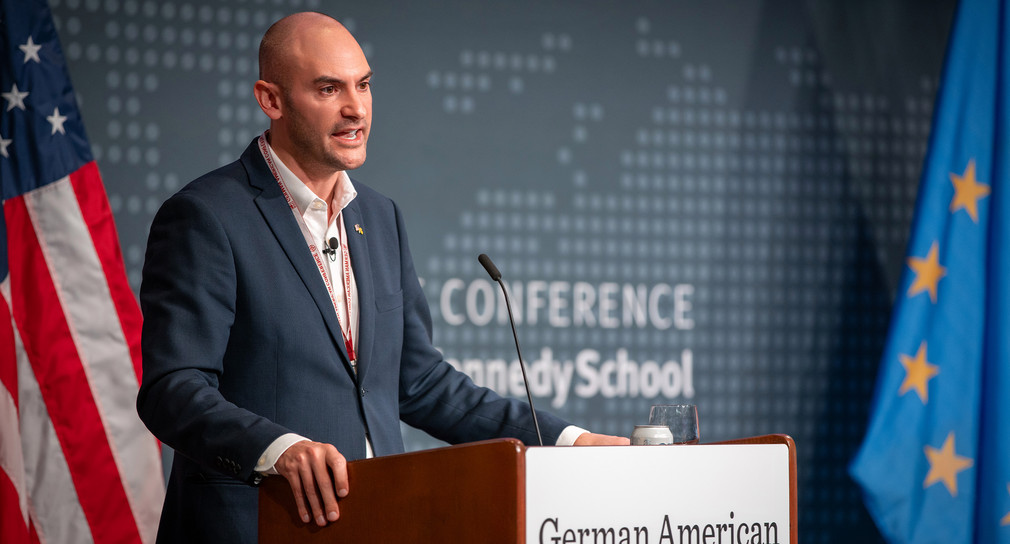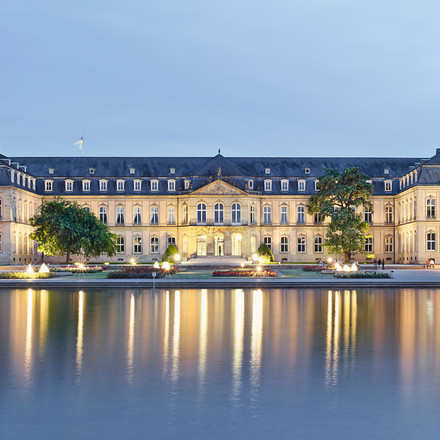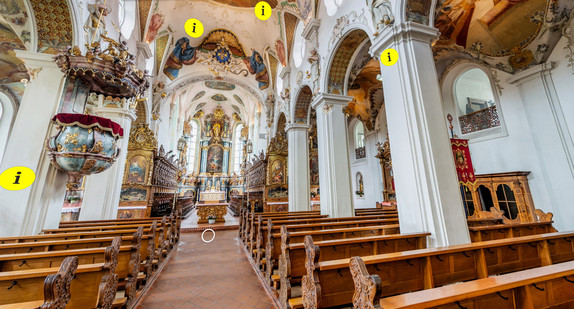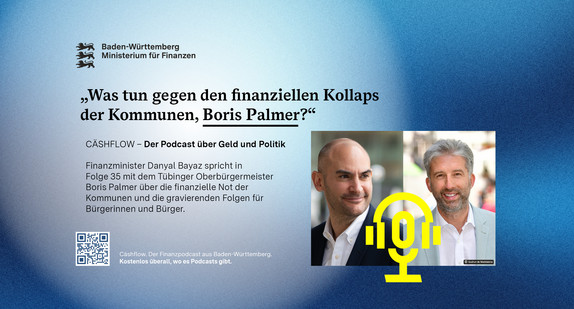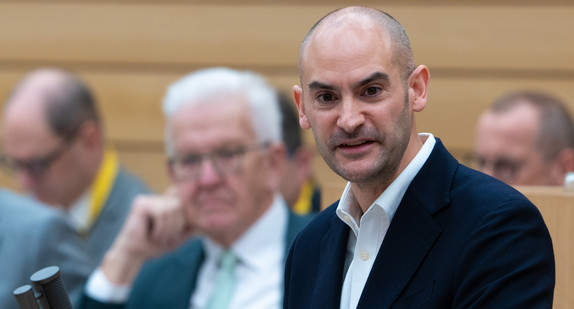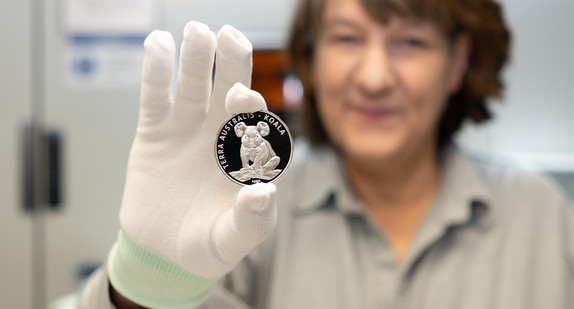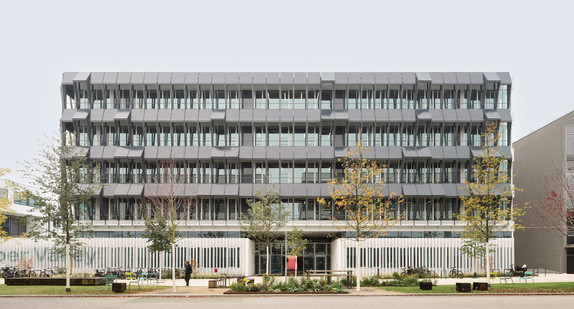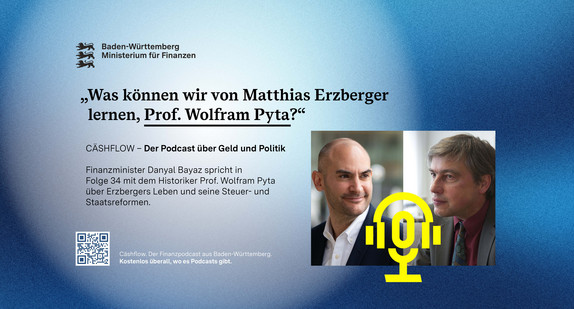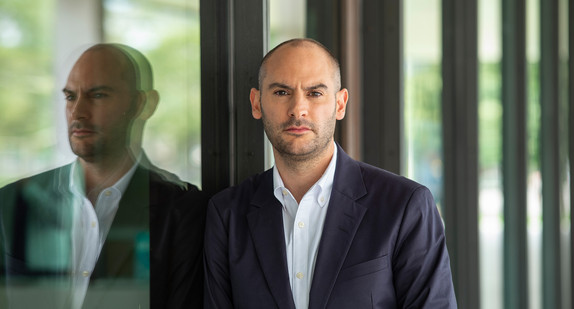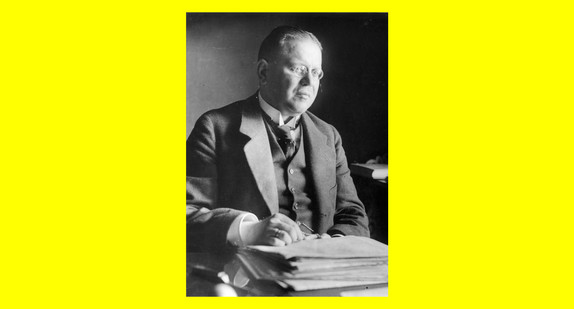Keynote von Dr. Danyal Bayaz:
Transatlantic partnership in the 21st century -
Regional cooperation in geopolitically challenging times
Dear Mr. Bauer,
Mr. Risse,
Dear Students,
Ladies and gentlemen,
Just over a week ago, the 35th anniversary of the fall of the Berlin Wall was celebrated in Berlin. Under the motto “Uphold freedom!”, Berliners remembered that living in freedom cannot - must not be taken for granted.
And this applies to all German citizens: we owe our freedom to a large part to the United States of America.Therefore, it is a great honor and a great pleasure for me to have the opportunity to speak to you here today.
Unforgotten are the historic speeches of the US Presidents, Kennedy and Reagan in Berlin.
John F. Kennedy’s exclamation: "Ich bin ein Berliner" and Ronald Reagan’s public demand to Mikhail Gorbachev: "Tear down this wall!" are from different decades of the Cold War.
Both speeches are testimony to how closely the United States stood by Germany and Europe during this period.
Even though there was almost a quarter of a century between the two speeches, the Federal Republic could always be sure of the protection of the USA.
Irrespective of whether the president was a Democrat or a Republican. Again, under Joe Biden, Europe was always able to rely on the USA. To ensure that this will be continued in the future we will have to make some changes.
After the end of the Cold War, we in Germany lived well from the peace dividend. We imported cheap gas from Russia, sold our products to China and could further rely on the USA in the case of conflicts.
Such as currently is the case in the Ukraine and the Middle East.
My federal state also benefited to a large extent from this period.
With the rise of China as a global economic power and Russia’s aggressive attack against the Ukraine, this business model has become something of the past.
And regardless of the outcome of the US presidential election, it is up to us in the Federal Republic to take on more responsibility in this difficult geopolitical situation. Out of an obligation to ourselves and to our allies.
Ladies and gentlemen, Donald Trump is the 47th President of the Unites States. As a politician in my state, I will not be judging the election and its outcome.
But like many other Europeans, I am glad that the election campaign in the USA is now over. We have a certain clarity and can look to the future.
In doing so, we also have to deal with the message of the election. Donald Trump has been given the vote by US citizens to further safeguard the US economy.
And when it comes to global conflicts, the US voters have called on the new president to demand more personal responsibility from the affected regions. We in Europe are particularly affected in this respect.
Unfortunately, the Federal Republic has been in a state of uncertainty since the federal government coalition collapsed. As a federal state, we are dependent on stable relations with the United States.
This is what I will be counting on in the coming years – with new governments both in the United States and the Federal Republic of Germany.
In particular the companies in my state live to a large extent from exporting. The USA is the most important market. In 2023, almost a quarter of all German US exports came from Baden-Württemberg. Again, in this year, most exports from Baden-Württemberg will go to the Unites States.
The United States are our most important business partner. As a federal state, we provide our companies with local presence. We have a state representation at the EU in Brussels, maintain a close exchange with our Swiss neighbors, share a 300 km border with France and also have a state representation in California.
Two years ago, I was in California and in Pittsburgh with a delegation from the state government to learn something about the success of the respective regions at a local level.
In Pennsylvania, it is the strong universities, like here in Harvard, that play an important role for the prosperity of the people and the regions. They also made a transformation in the region possible.
In Baden-Württemberg, we also have excellent universities and colleges. But here we need to improve the transfer from science into successful business models.
I learnt a lot from this trip.
Regional exchange and regional cooperation are key to consolidating the bond between the USA and Germany – even in geopolitical difficult times.
The Institut der Deutschen Wirtschaft, an Institute for Economic Research, regularly analyzes the competitive capacity of transatlantic regions.
Following California and Massachusetts, Baden-Württemberg has a good third place. To consolidate this ranking, we need to work together and learn from one another.
Ladies and gentlemen, I referred to the end of our business model and I would like to take a closer look at two topics:
At first, the ongoing de-globalization.
After the financial crisis, only one percent of goods traded worldwide were affected by import restrictions. By the end of 2023, it was almost ten percent, according to a study by the research department of our state bank.
It is currently a challenging time for regions and countries whose economies are based on free trade and open markets.
In the Middle East, the terrorist attack on Israel by Hamas has triggered a war that affects other areas and countries in the region - not only Palestine and Israel.
And in Europe, the Russian war of aggression in the Ukraine has been ongoing for more than two years.
The economic side effects of this attack have been turbulences on the energy markets, disrupted supply chains and global inflation rates that have not occurred since the oil crisis in the 1970s.
Trade tensions between the USA and China have also been on the rise for some years. After the US presidential election, it will not be easier.
President Donald Trump has said tariff is his favorite word. He has also mentioned Europe in this context.
I expect the EU Commission to enter into discussions with the new US administration as soon as possible, since it is of mutual interest that no new transatlantic trade barriers are created.
Customs tariffs do have side effects. They make goods more expensive and increase inflation. It was the biggest burden for the election campaign of the Democrats and that is why I expect the new president will not proceed ill-informed.
This also applies to the issue of migration: the deportation of many migrants will also increase labor cost inflation, which will result in an increase of prices.
So, we will have to wait and see what the actual action of the US government will in fact look like. But we must be prepared.
The USA and Europe share common democratic values.
They have been established and defended by changing governments over the decades. During this process, strong, democratic institutions have been created.
These are essential foundations for prosperity in our regions. This is the conclusion attained by the economists Daron Acemoğlu, Simon Johnson and James A. Robinson in their scientific works.
In September, Acemoğlu gave a lecture at the Kennedy School. Maybe he addressed the topic. A few weeks ago, the scientists were awarded the Nobel Prize for Economics for their work. Very well deserved, if I may say so.
And in recognition of the findings of the Nobel laureates, the common foundation of values and the successful cooperation, trading with one another even in difficult times must be possible - based on a reliable common framework.
The WTO has lost a great deal of its relevance in recent years. One important reason is the trade conflict between the USA and China.
Nevertheless, a complete collapse of the multilateral institution would have even more negative effects than the increase and introduction of further US custom duties.
The Kiel Institute for the World Economy, together with the Austrian WiFo Institute, has calculated that a complete collapse of the WTO would reduce the GDP in the EU by 0.5 percent.
In the USA, the negative effects would be slightly smaller, but still relevant.
Therefore, I hope that on both sides of the Atlantic the people responsible will be reasonable and act with a sense of responsibility.
But it shouldn’t get so far.
I’ve spoken about the importance of the US market for the companies in Baden-Württemberg, also being a benefit for the United States.
Almost 20% of German US imports go to our federal state.
In 2022, the most recent year with available data, almost 30 percent of direct investments by companies from Baden-Württemberg went to the USA. These investments had an equivalent value of almost 93 billion euros.
So all parties benefit from the cooperation – in particular the strong regions on both sides of the Atlantic. Therefore, it is worth investing in the transatlantic relationship. Especially now.
Now, I would like to turn to my second point in more detail – security. It also has a lot to do with my specialist area, finance.
At the beginning, I mentioned that the Federal Republic of Germany was able to rely on the protection of the USA, also even after the Iron Curtain fell.
I’m from Heidelberg, where NATO’s European headquarters were stationed for a long time. We knew GIs as our neighbors or guys on the street.
That shaped my understanding of security.
I think many Germans feel the same way. And this collective feeling of security under the umbrella of the US Americans is still with us.
But after reunification, the Federal Republic became somewhat naïve when it came to security policy and I don’t want to make an exception for my own party in this respect.
The importance of a strong Bundeswehr for the freedom and sovereignty of our country has not been given enough recognition.
In 2014, Barack Obama and the then British Prime Minister, David Cameron called out to the NATO member states to meet the two percent target agreed by NATO in 2002.
At that time, only four countries met the target. And just a few months earlier, Russia had annexed Crimea. But too little has happened.
In 2009, following the financial crisis in the Federal Republic, the debt brake was introduced to reduce our country’s debt ratio.
During the crisis at that time, the government debt became a major problem for other euro states. But this shouldn’t happen in Germany. Therefore, the debt brake limited the capacity for indebtedness.
Nevertheless, there would have been sufficient financial leeway for major security investments in the period following 2014.
On the basis of the business model I mentioned at the beginning, the economy boomed: cheap energy from Russia, high exports to China. Government revenues also benefited from this.
The pandemic changed the situation entirely: international supply chains collapsed, global trade, in particular trade with China, became increasingly difficult.
Now that the problems related to the pandemic have been solved, China’s self-confidence on the global market is on the rise.
It does not take the rules of global trade very seriously or tries to dictate them on its own. China is taking advantage of the fact that it can operate eye-to-eye with Europe and the USA when it comes to technology.
On the other hand, the energy factor has become a regional handicap of the Federal Republic and Europe. Most gas and oil pipelines to Russia have been cut.
Here too, the United States has filled part of the gap in Germany with LNG supplies.
However, the problems meanwhile have a strong impact on public budgets. I can see that in my own state.
But in particular the federal government is realizing it.
The mentioned debt brake is a severe limit on its spending options.
After Russia’s attack on the Ukraine, there was still a consensus with the opposition. The Basic Law was amended and a 100 billion special fund set up for the Bundeswehr.
This was used to organize the support for the Ukraine and make long outstanding procurements for the Bundeswehr. 35 F-35 fighter jets from the USA were also ordered.
At present, this special fund is almost gone. With the new US president, it can be expected that Germany and Europe will have to play a stronger role in supporting the Ukraine.
The Institute for the World Economy in Kiel, I already referred to, has calculated that the aid for the Ukraine to date has cost each German citizen some 50 euros per year.
The end of this aid and a dictated peace by Russia would cost our country 10 to 20 times as much, according to the Institute for the World Economy.
Therefore, it is in our own economic interest to increase our defense spending and support the Ukraine.
But due to the debt brake, this is not possible without saving in other areas.
This in turn would further worsen our strained economic situation. Almost all reputable economists have therefore referred to the need to reform the debt brake.
Nevertheless, the dismissed Federal Minister of Finance stubbornly held on to the debt rule. A mistake that threw the Federal Republic into a deep crisis.
That’s a mistake because our debt ratio is only just over 60 percent of our economic performance.
Unlike the USA, where we see things uneasy about the increasing government debt, our situation is still quite comfortable. We do have a scope of action which can be used in a more targeted manner.
Don’t get me wrong. I myself am a great supporter of the debt brake. As the largest economy in the European Union, we have to have our debt ratio in mind.
Also for the stability of our common currency.
But for stability it is just as important that our country is capable of acting and assuming responsibility.
That is why I have been long in favor of the further development of our debt rule.
The International Monetary Fund does not consider this an obstacle to further reducing our debt – provided that we act moderately. And we are restricted to pure investment measures – for me, security is part of this.
There are many proposals for reform – everything from the Bundesbank to academics.
The new constellations in the USA and the Federal Republic make adjustments all the more pressing.
In my opinion, it is very important to reach a political consensus on how to finance our security before the new election in Germany.
We need to come to terms with and understand security policy – for our freedom, but also as a gesture to our allies.
Ladies and gentlemen, we Germans relate a bit differently to our history. While the Americans are proud of their freedom movement, our priority is on how we dealt with the Third Reich.
We also look back at democratic movements – even if they were not so successful at the beginning. A few weeks ago, I celebrated the 175th anniversary of the Baden Revolution in the city of Rastatt.
Baden is part of my federal state. The President of the Constitutional Court, who will also be speaking here today, was also there. As part of the revolutions in Europe in the mid-19th century, the people of Baden wanted a democratic constitutional order.
After the suppression of the uprising, some protagonists found this order and their freedom in the USA.
Here, the way for the American Revolution was already paved.
Its history shows that democracy cannot be taken for granted. You have to fight for it. And you have to defend it.
The mixture of global conflicts and ongoing change processes, such as climate change have put liberal democracies under pressure.
Although people benefit from open markets and multilateral alliances, they want a stronger political focus on their own problems.
Inflation remains one of the biggest concerns – even though it is now comparably low.
There is not so much difference between Europe and the United States in this respect.
We must try to withstand this internal pressure.
This includes solutions and a good explanation of political decisions. This has often been the problem with the outgoing federal government.
Science can be very helpful to us as political decision-makers – both, through astute proposals, but also through good science-based communication.
That’s why I always look forward to events like this one here at the Kennedy School.
As a small region in Germany and Europe, Baden-Württemberg is also trying to participate in finding solutions through transatlantic exchange.
Because not only our prosperity is based on the cooperative interaction in Europe and around the world. We also owe our freedom in Europe to a large extent to the accrued integration of the European Union and the functioning community of values of democracies around the globe.
The philosopher Karl Popper once said, and I quote: “It is the virtue of democracy that its faults can be corrected, and that progress is possible thanks to shortcomings.”
Bearing this in mind, we are contributing to correcting our own faults, also in these geopolitically difficult times, to remain a strong transatlantic partner in the future.
The world is not the same as it was during the first presidency of Donald Trump. When he was first elected, there was no war in Europe.
The pandemic was unanticipated. And at the peak of globalization, world trade was booming.
All of this has changed. And in this changed situation, we in the Federal Republic must also take on more security policy responsibility and must not hide behind our fiscal rules.
Literally, our freedom must be something to fight for.
Ladies and gentlemen, “Tradition is not keeping ashes, but the passing on the flame”. This goes back to the English politician Thomas Morus, who lived in the 15th century. Dynamic and good transatlantic relations do not live from discussions about NATO budgets or customs tariffs.
They live from our exchange with one another. At different levels: in politics, business, science and also through study programs for schoolchildren and students.
As a school kid, I spent a year in Colorado. Then when doing my doctorate I studied one year at Cornell University. These two years shaped me, both have given me a strong bond to the USA.
Personal experience is decisive to give you the spark that’s so important for our relationships. Conferences like this one can help to keep this spark alive and the flame burning. I am grateful for this. And, in this spirit I wish you a good exchange and discussions.
Thank you very much.

